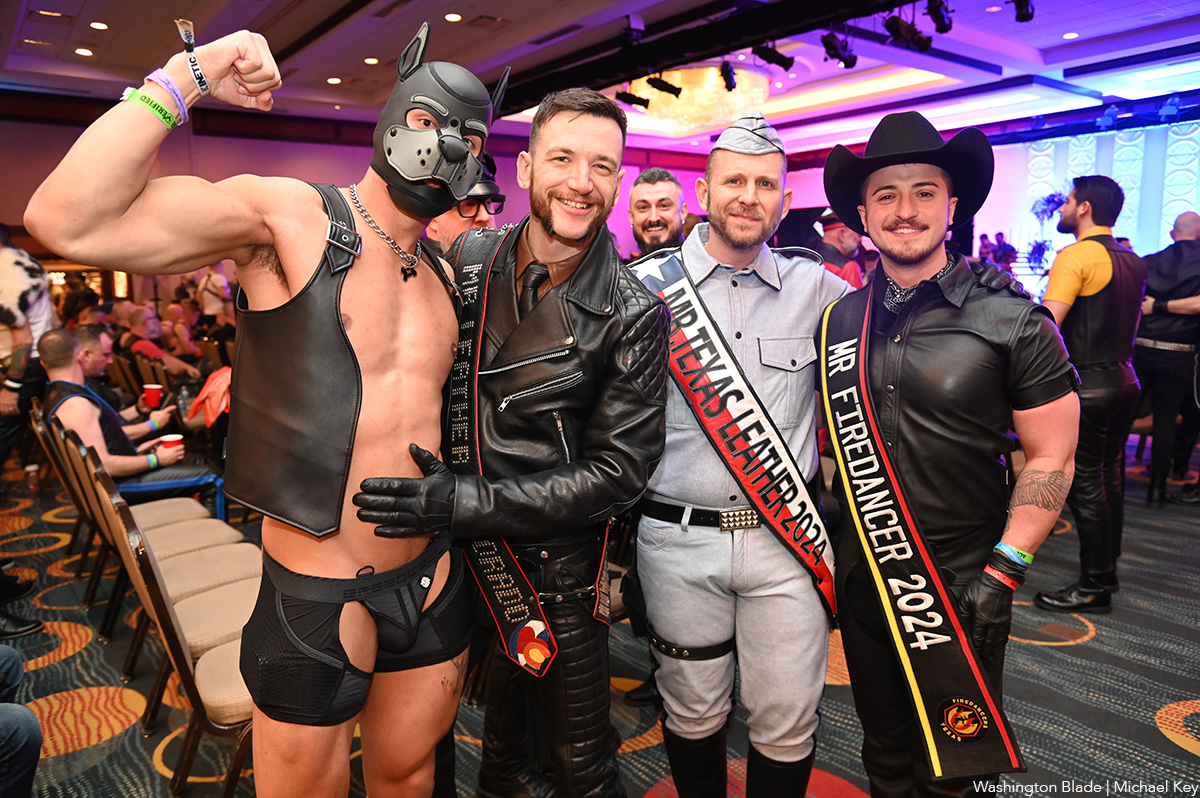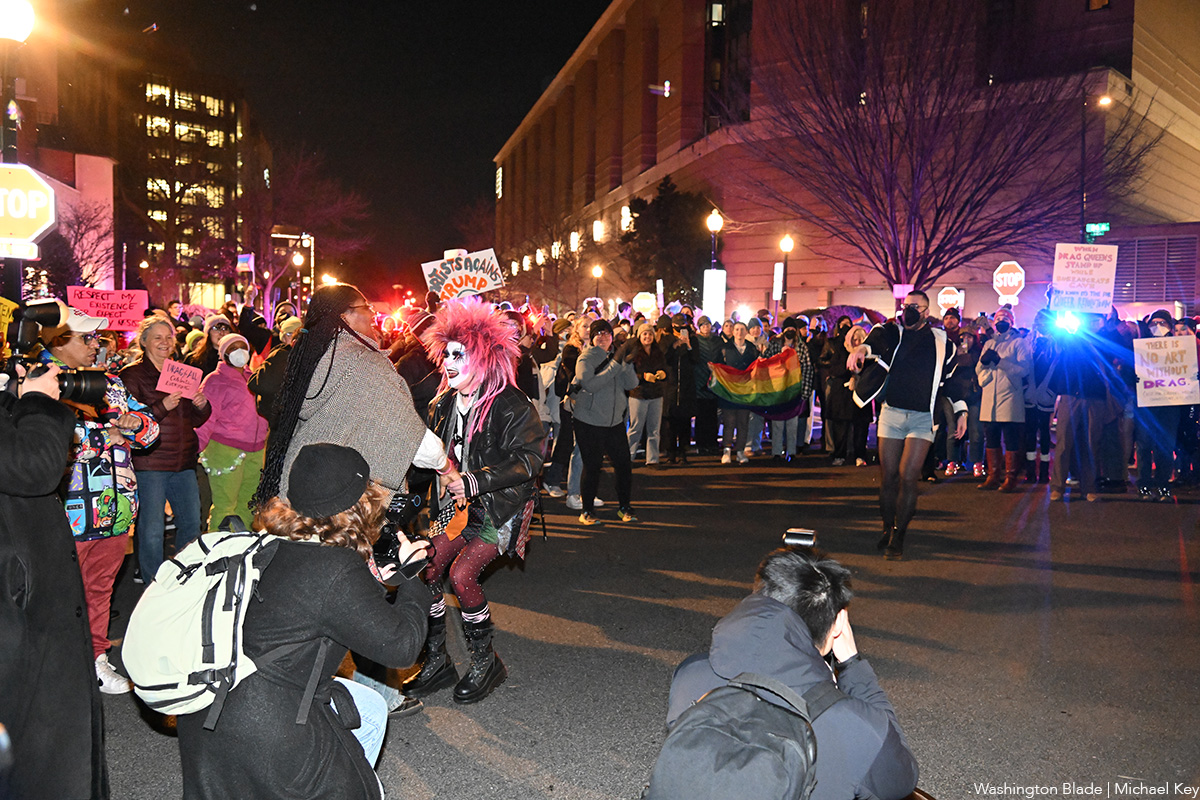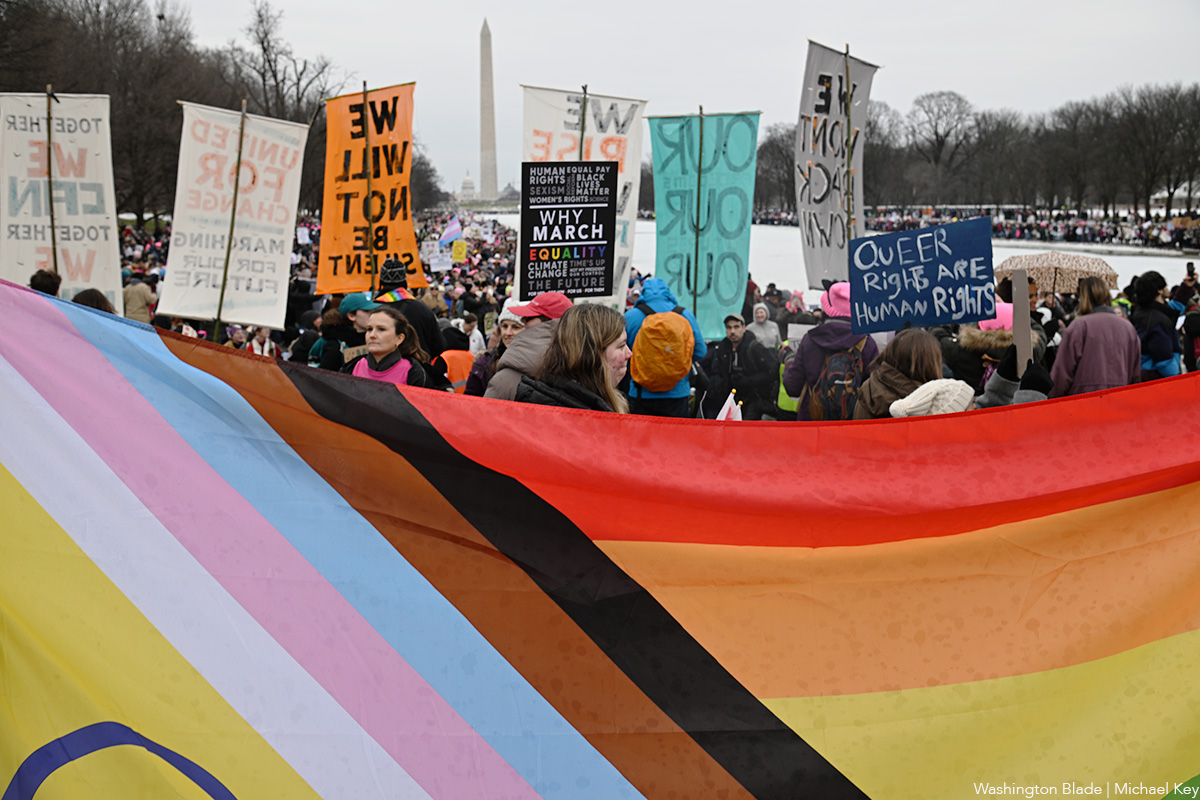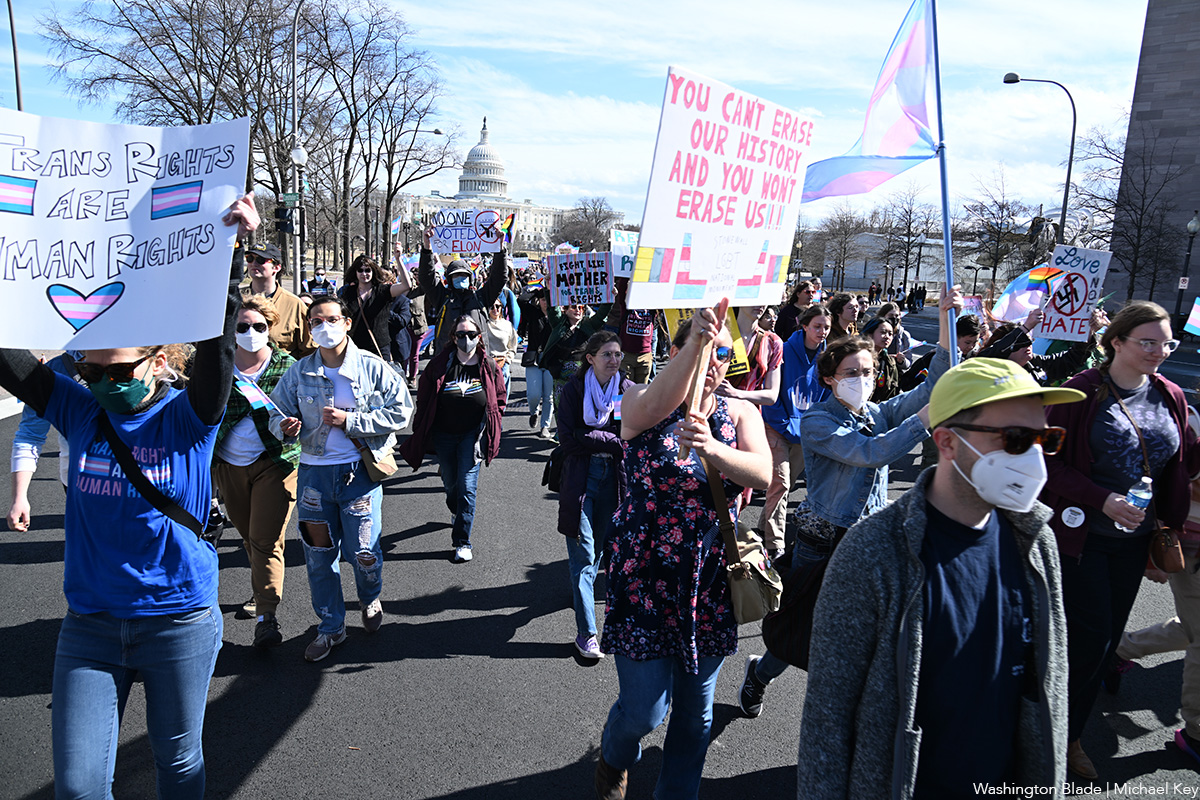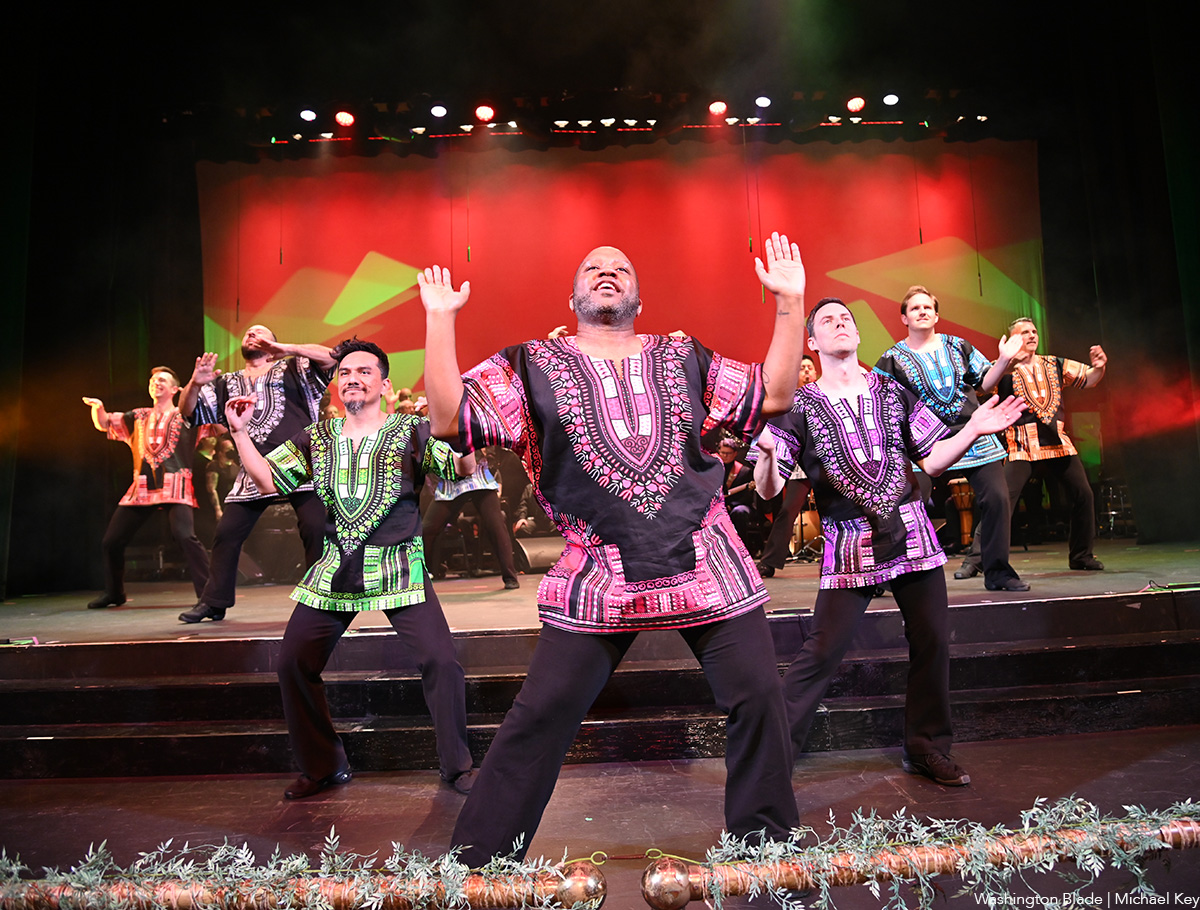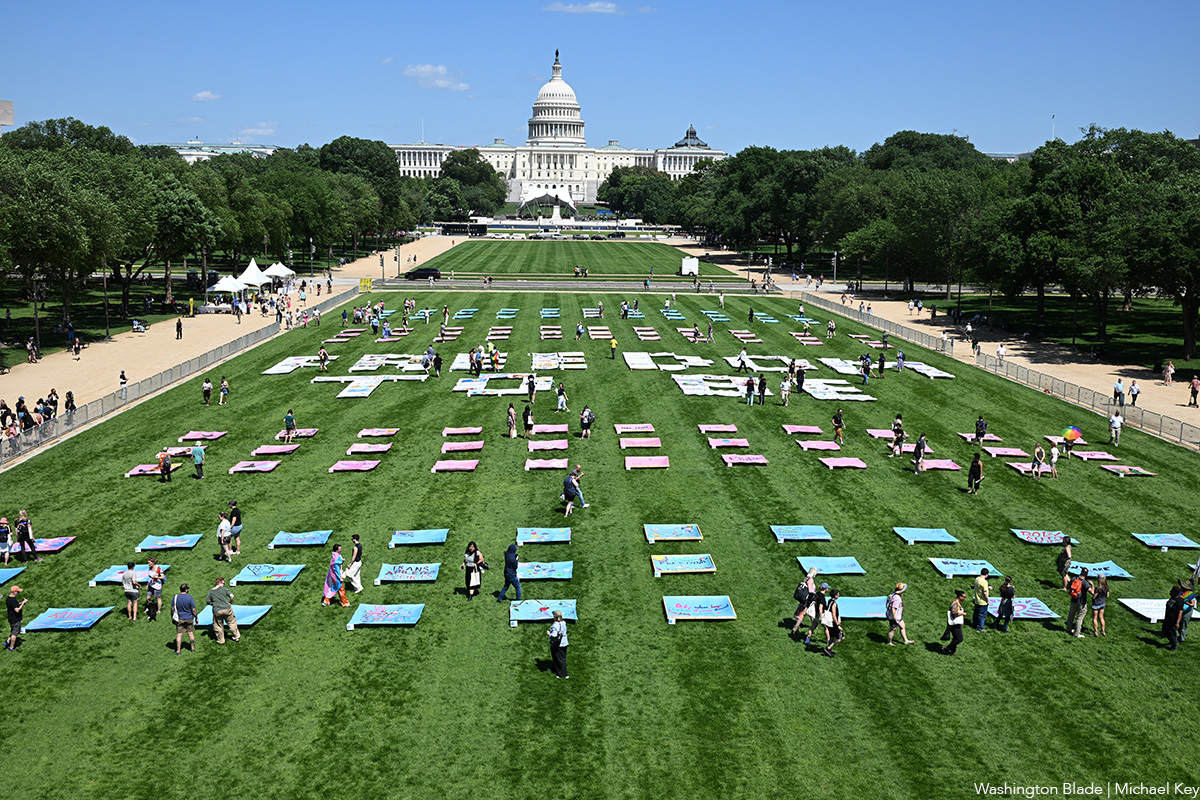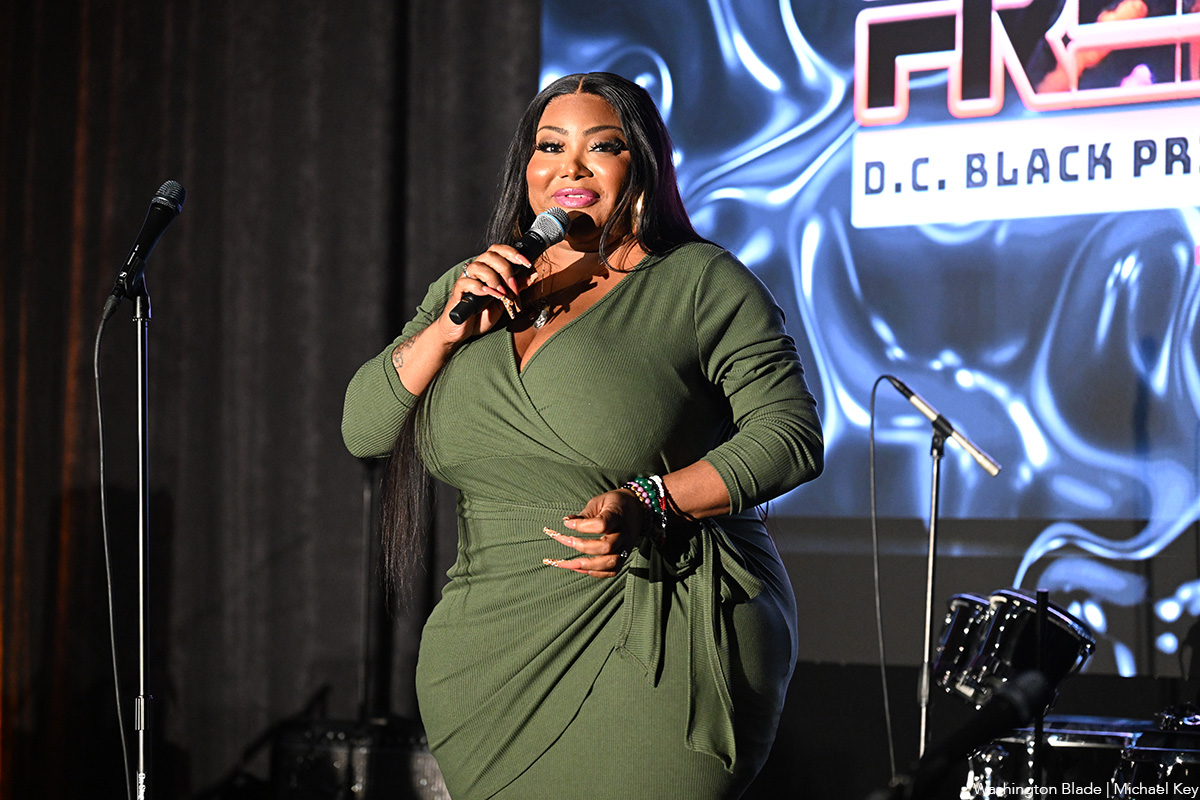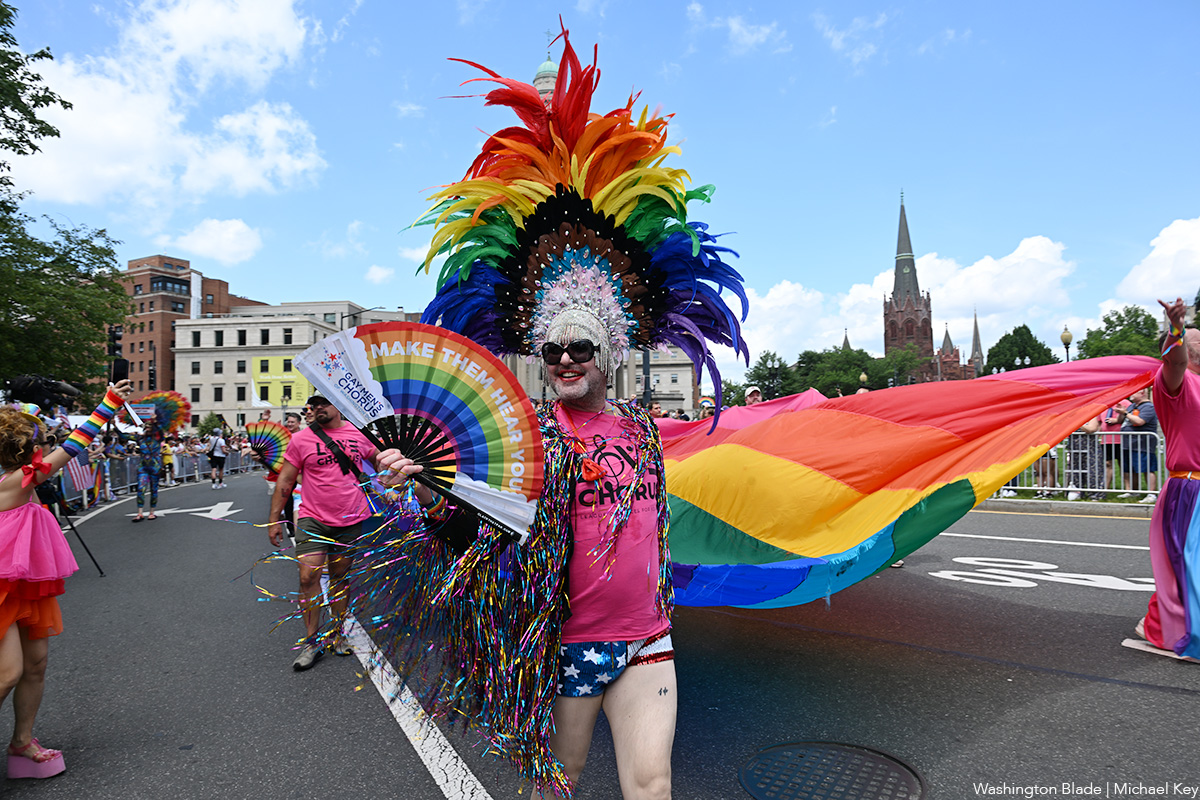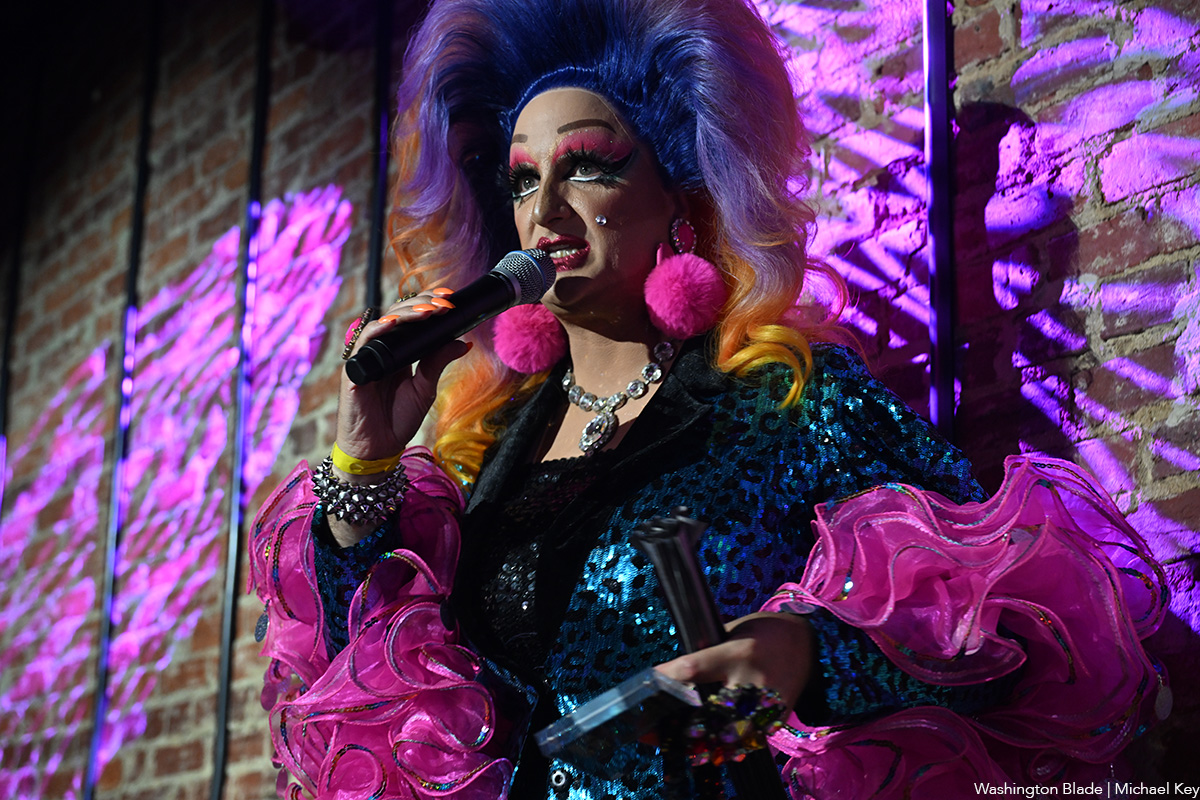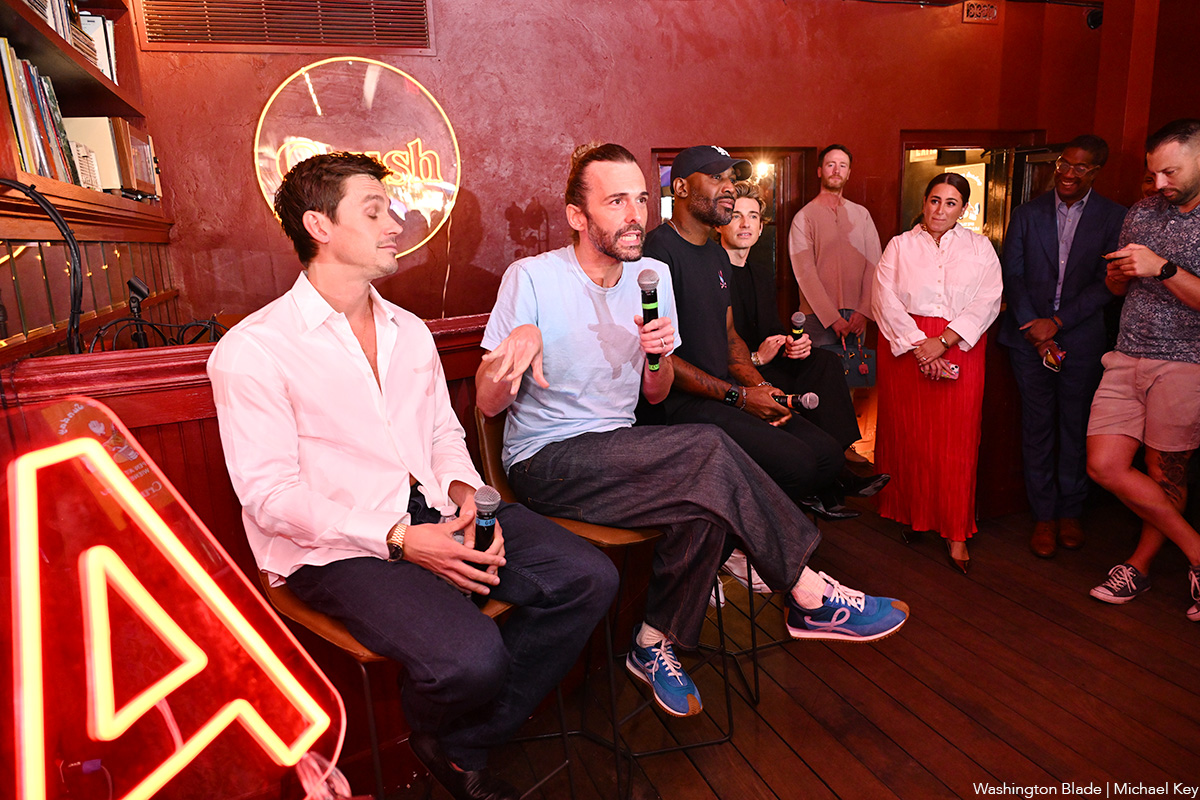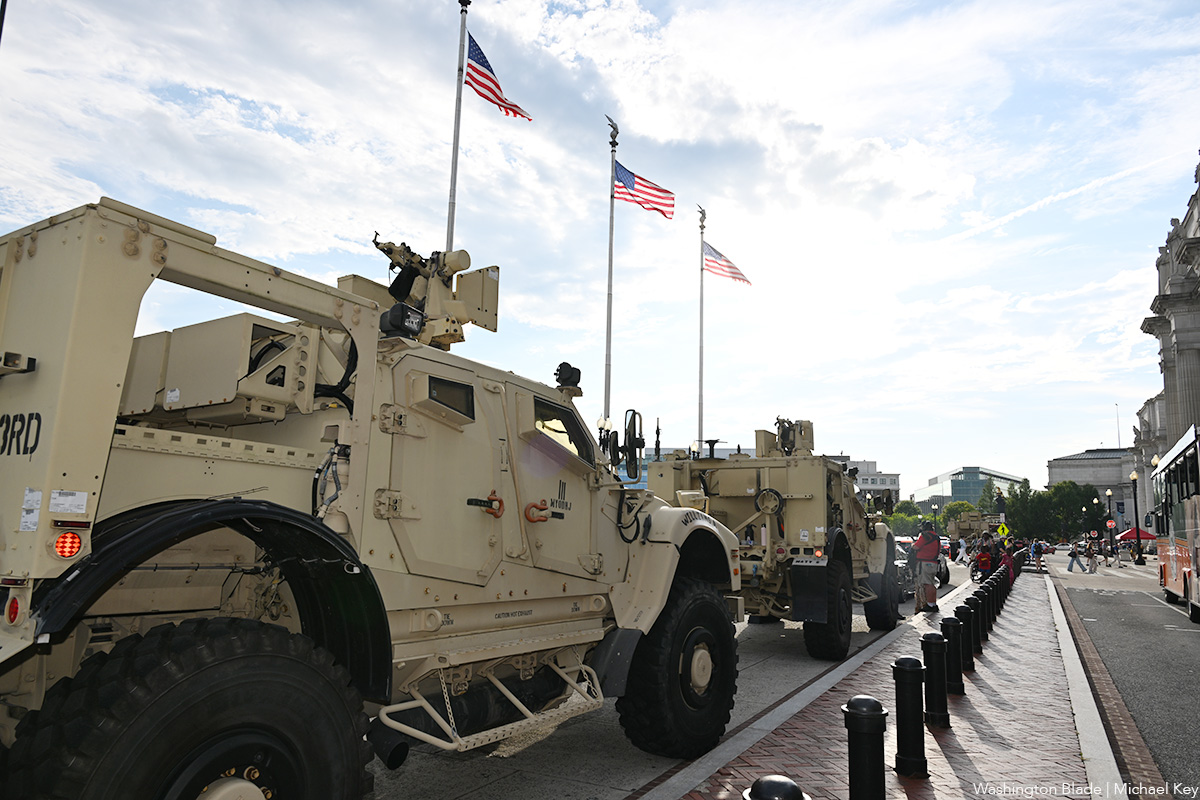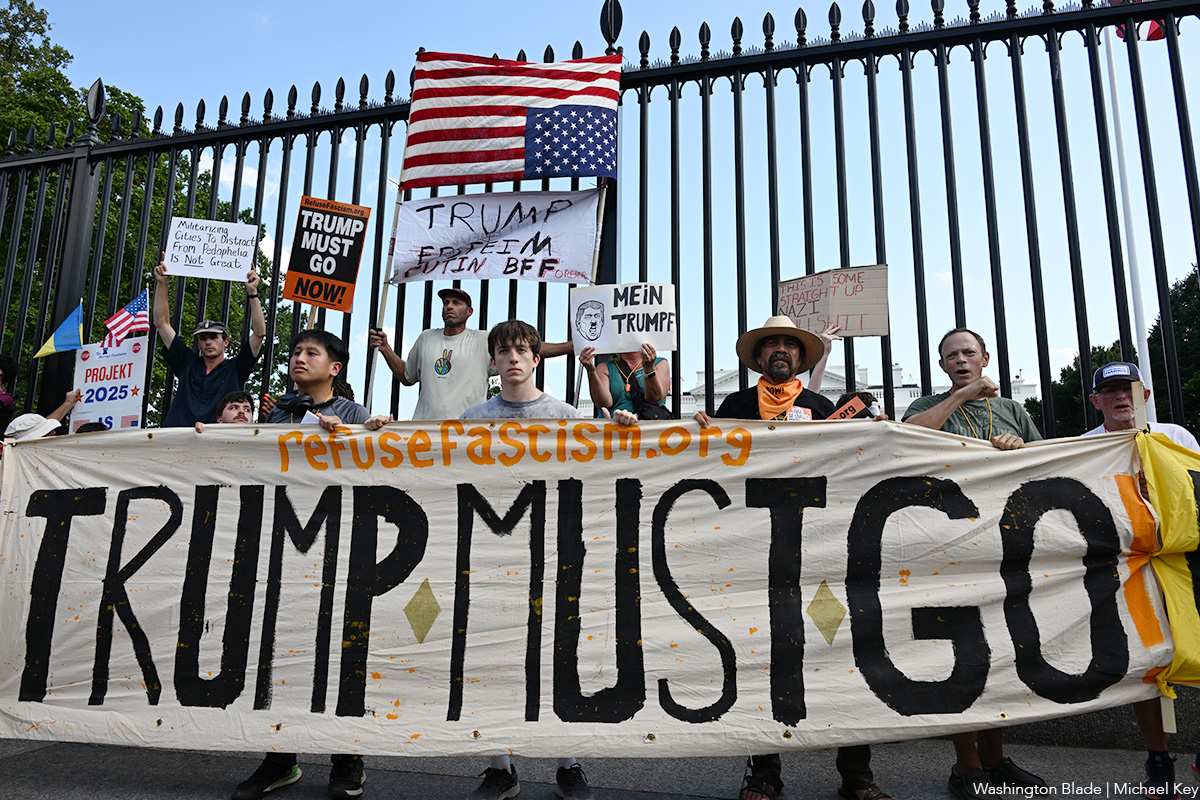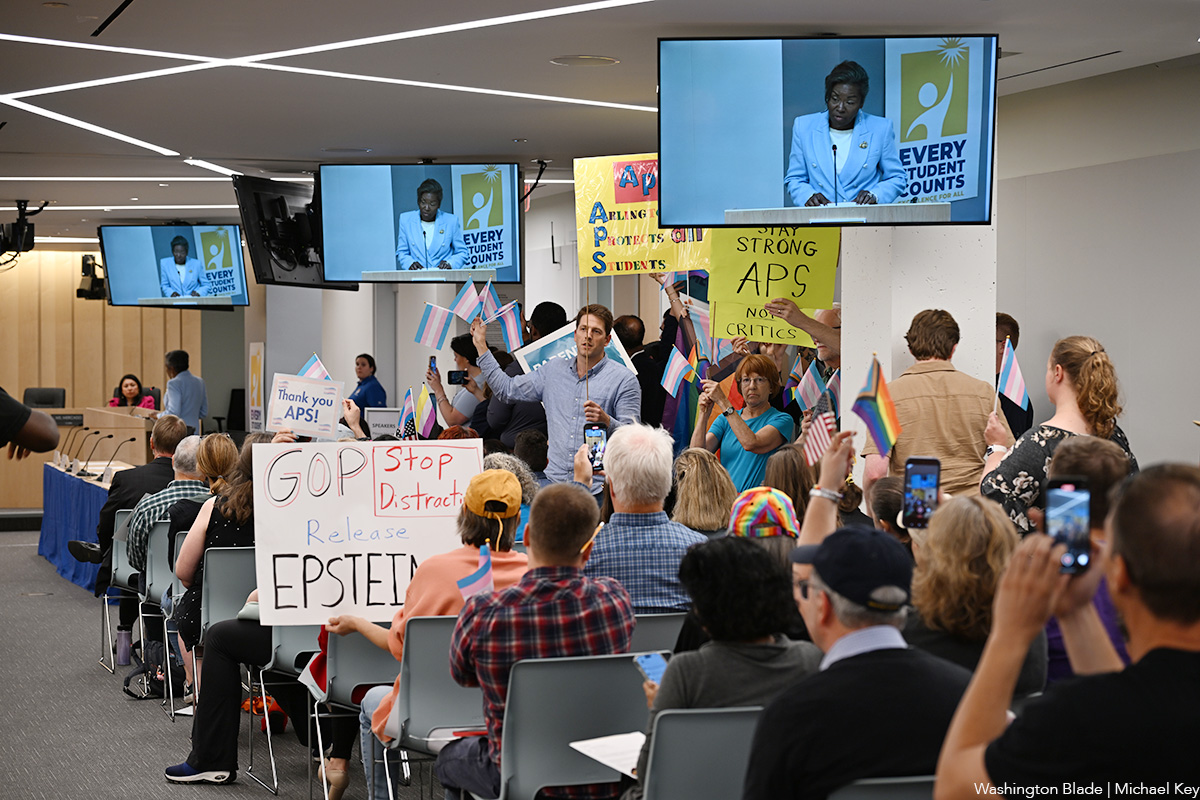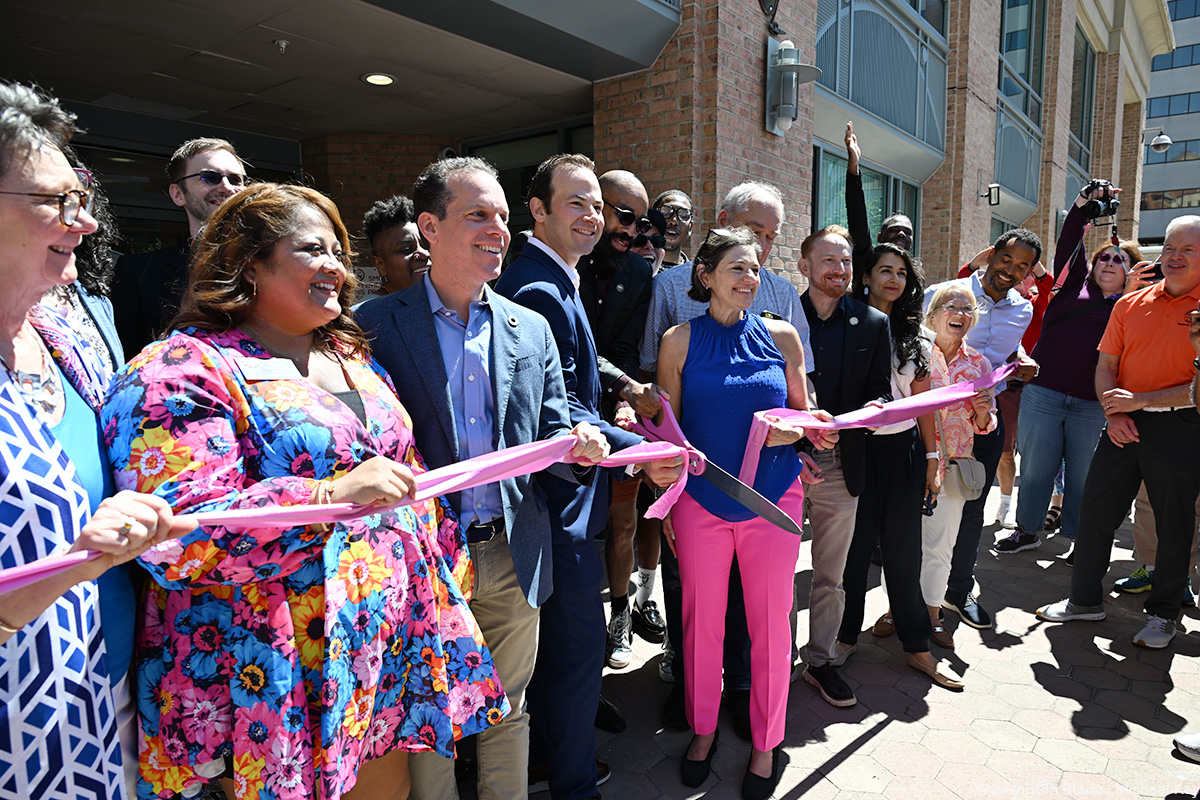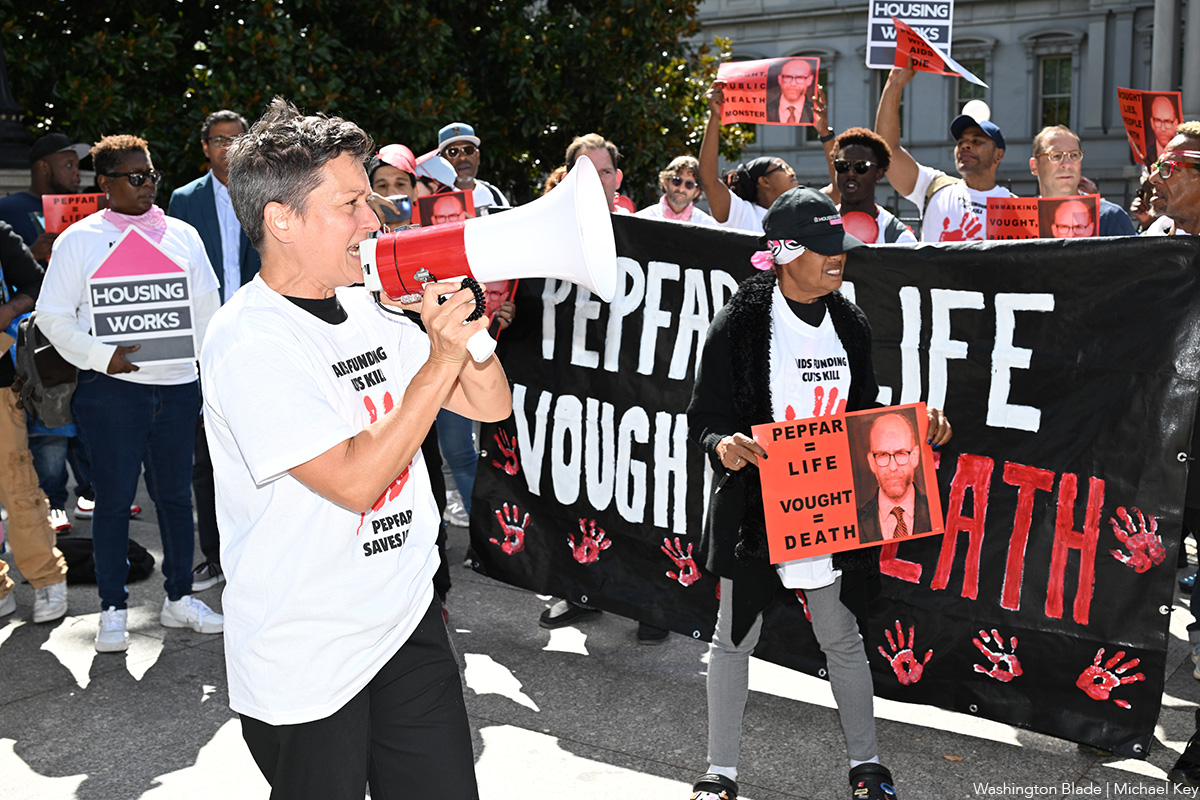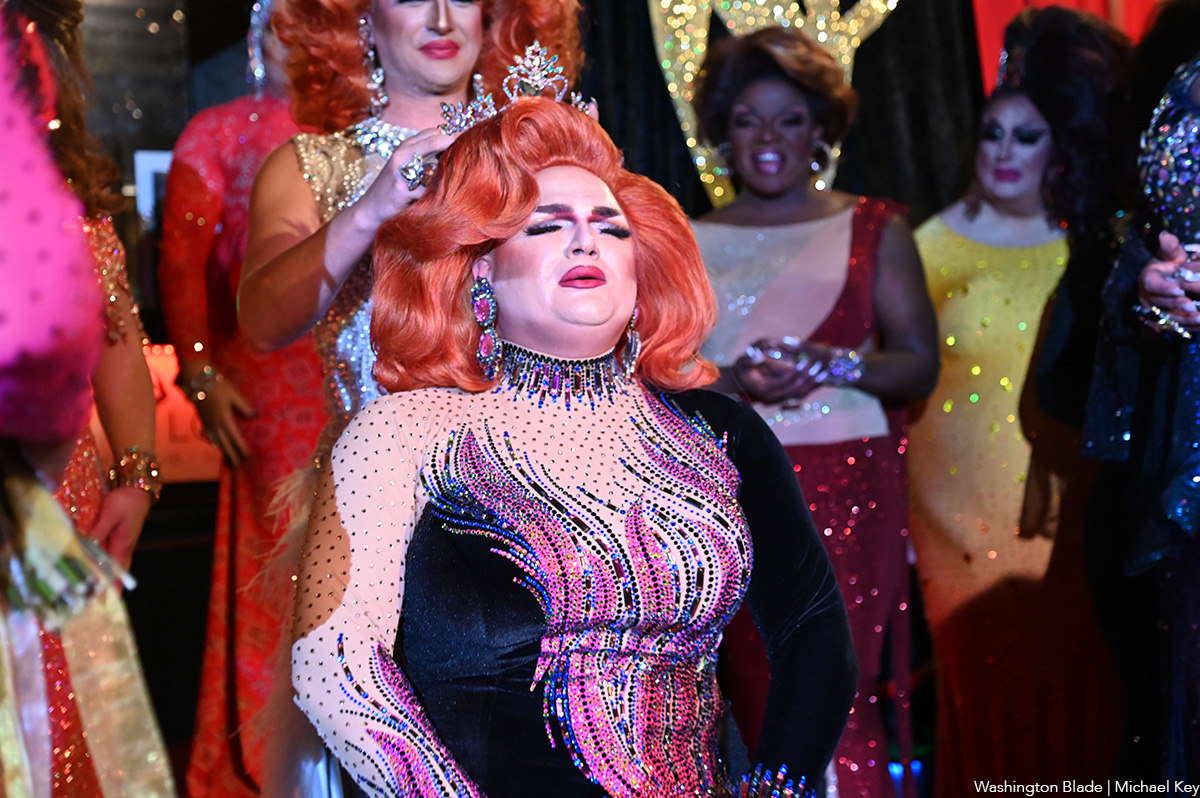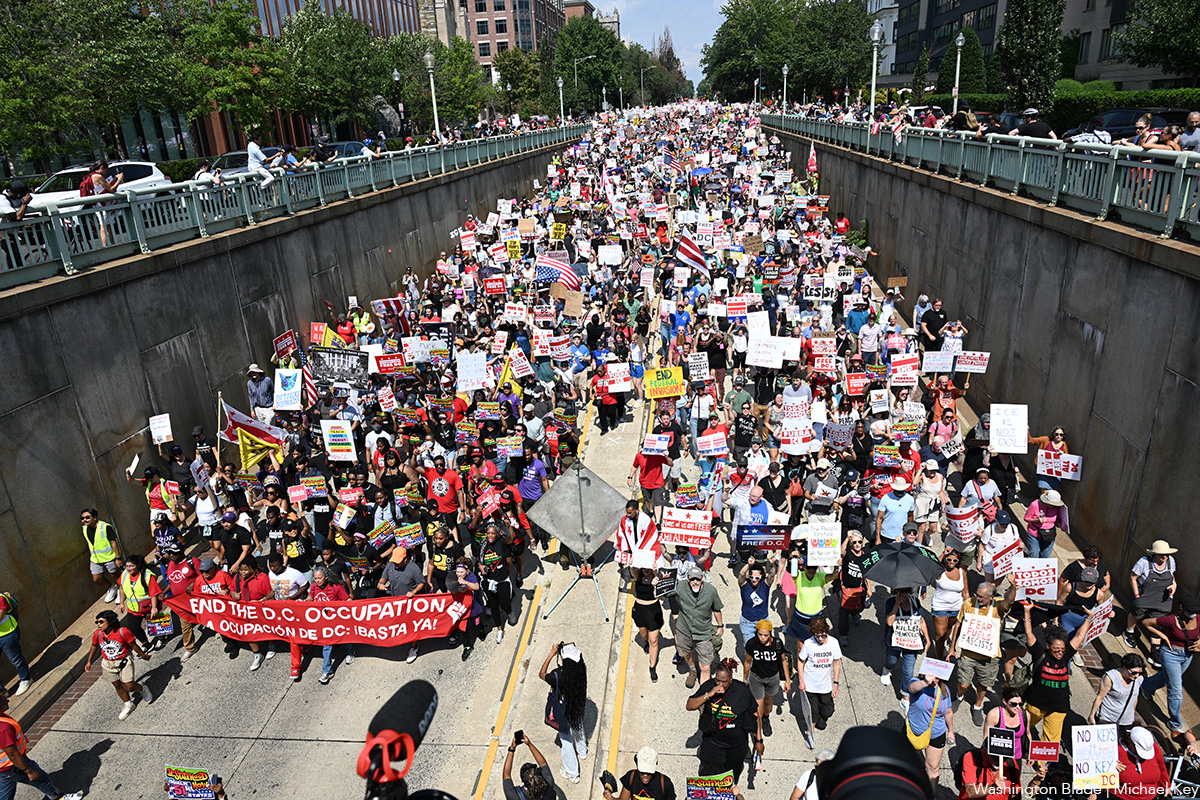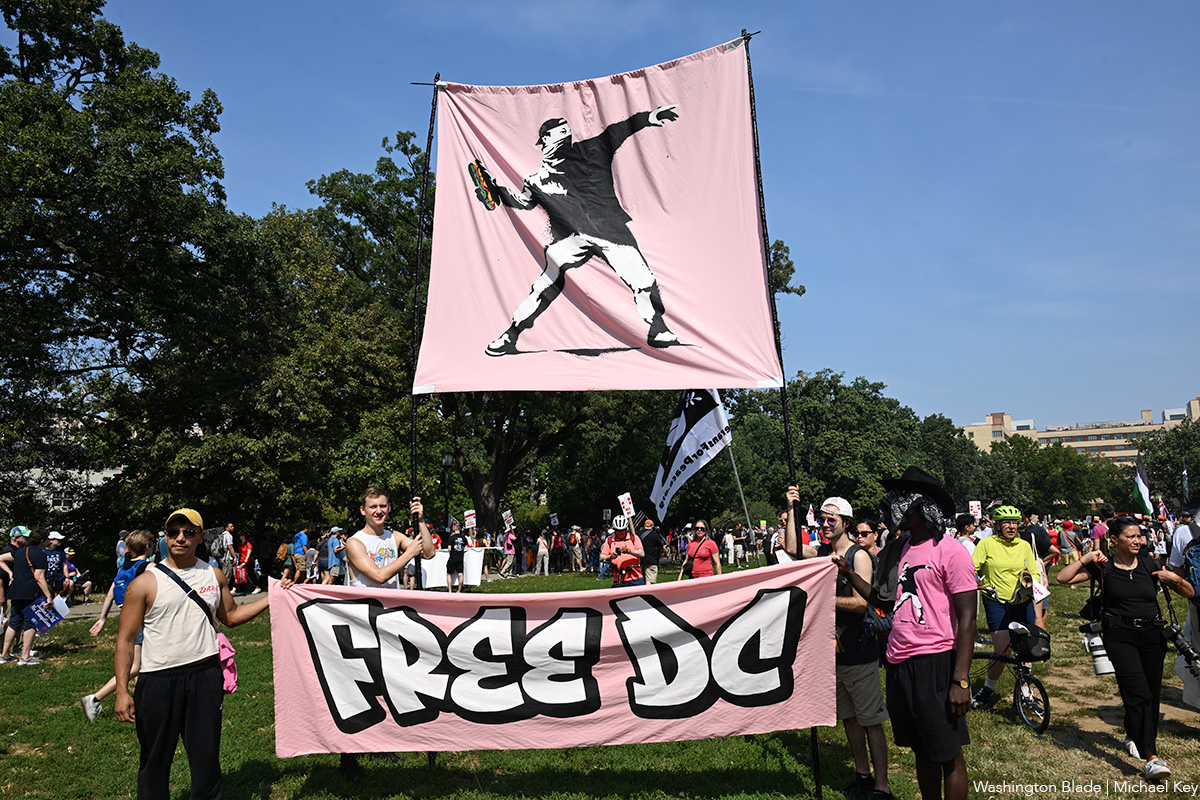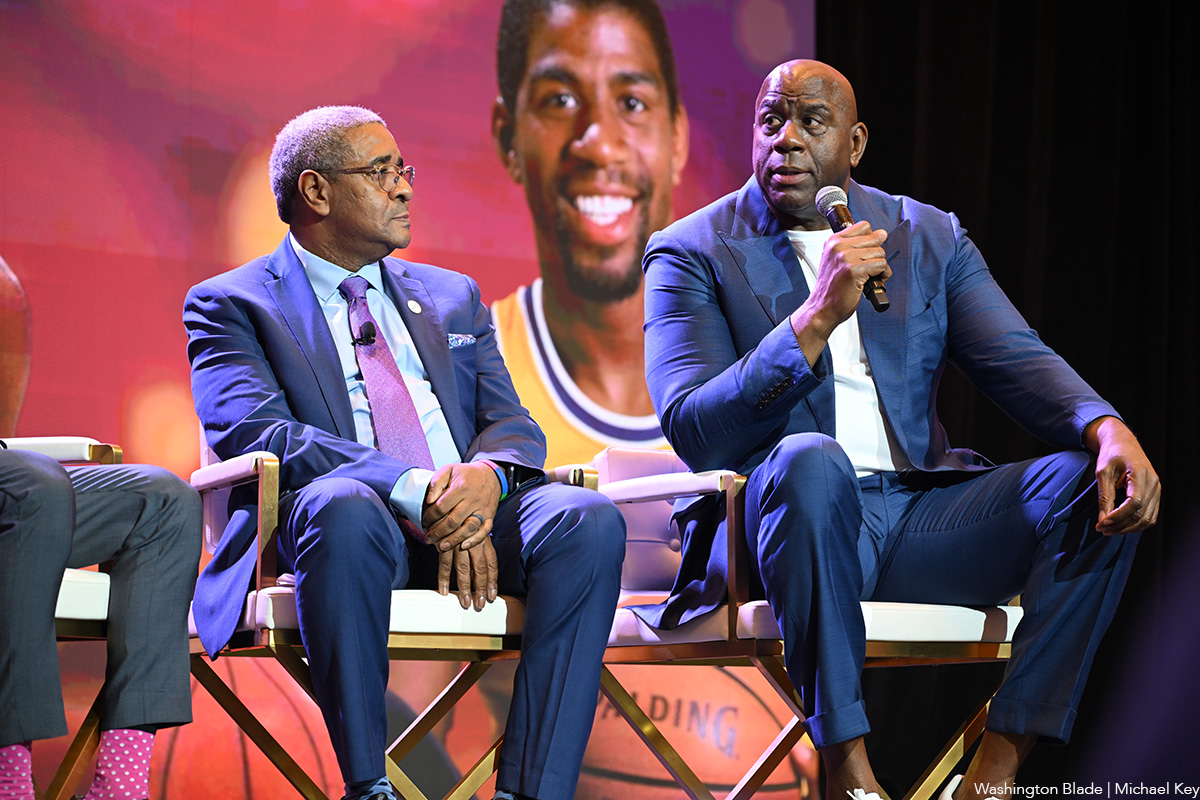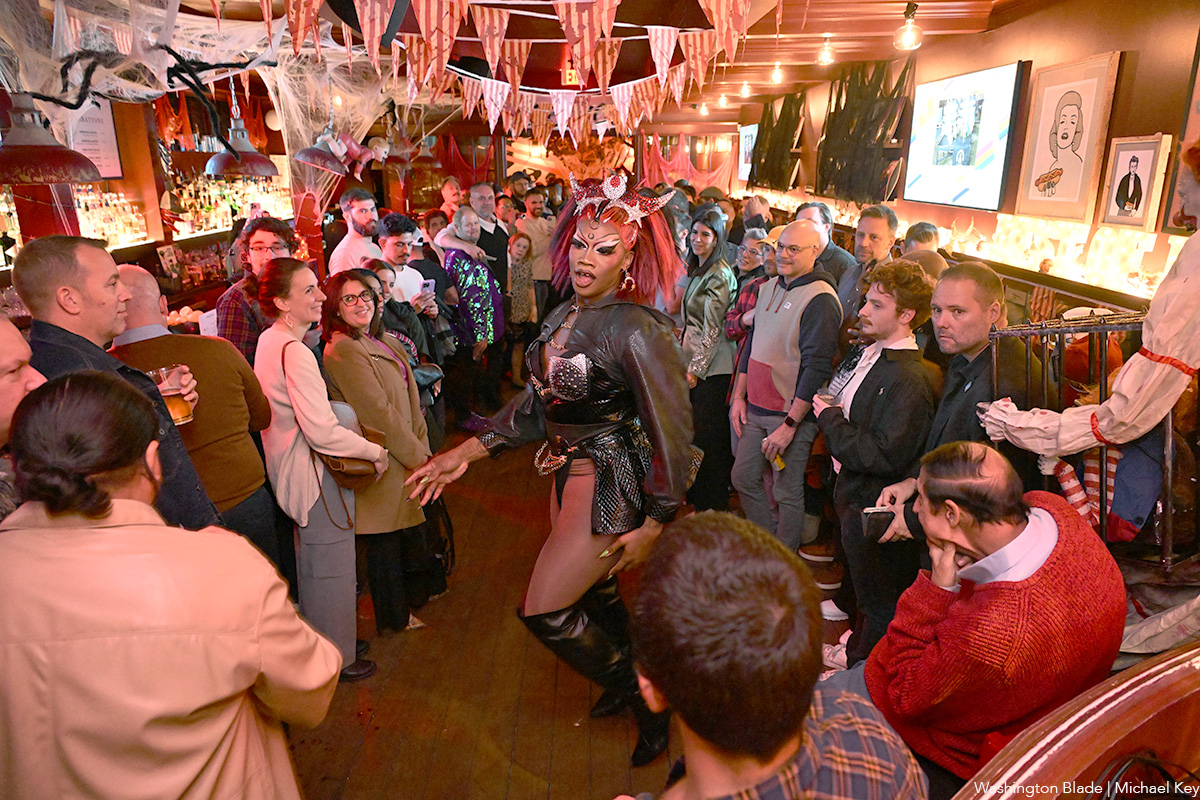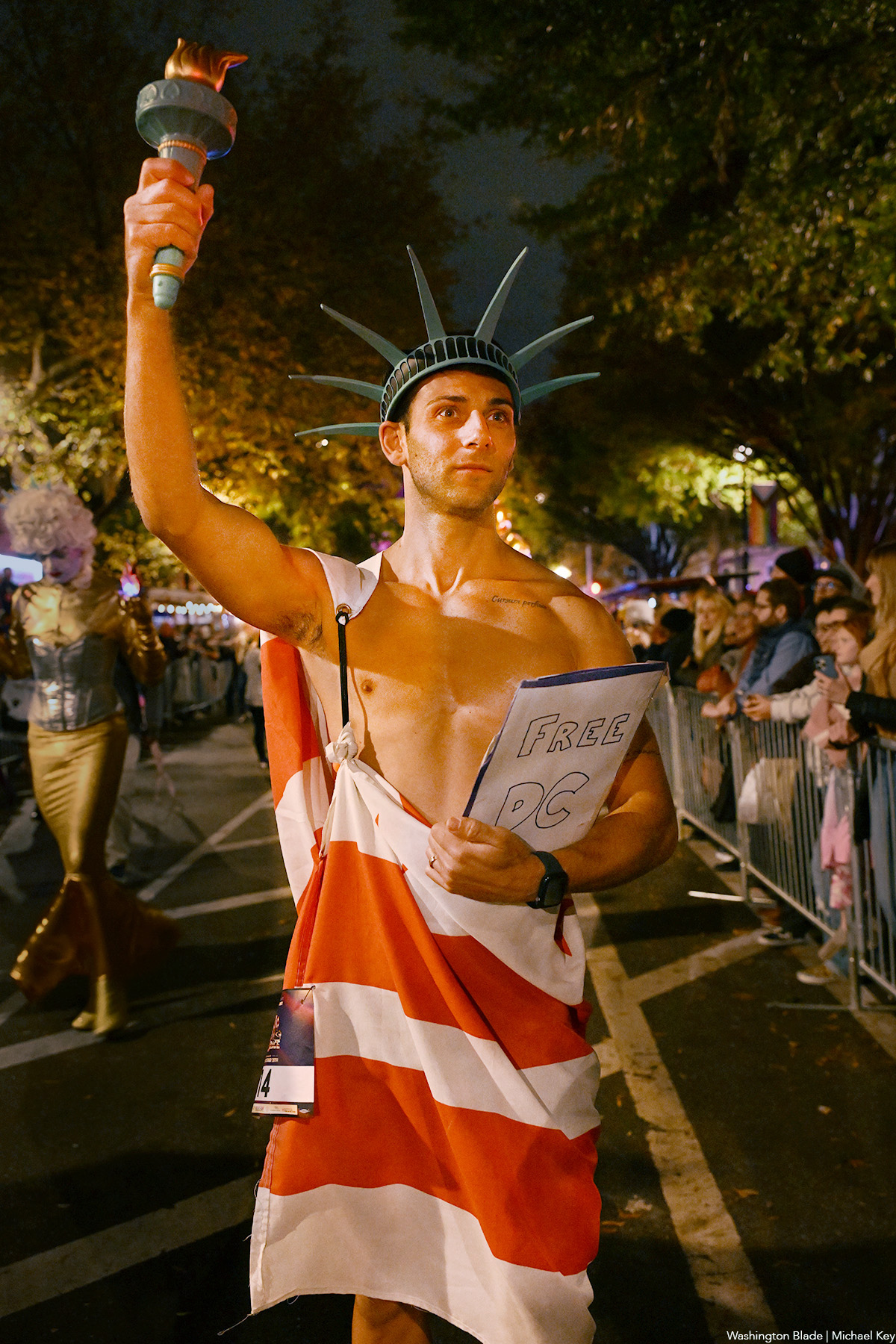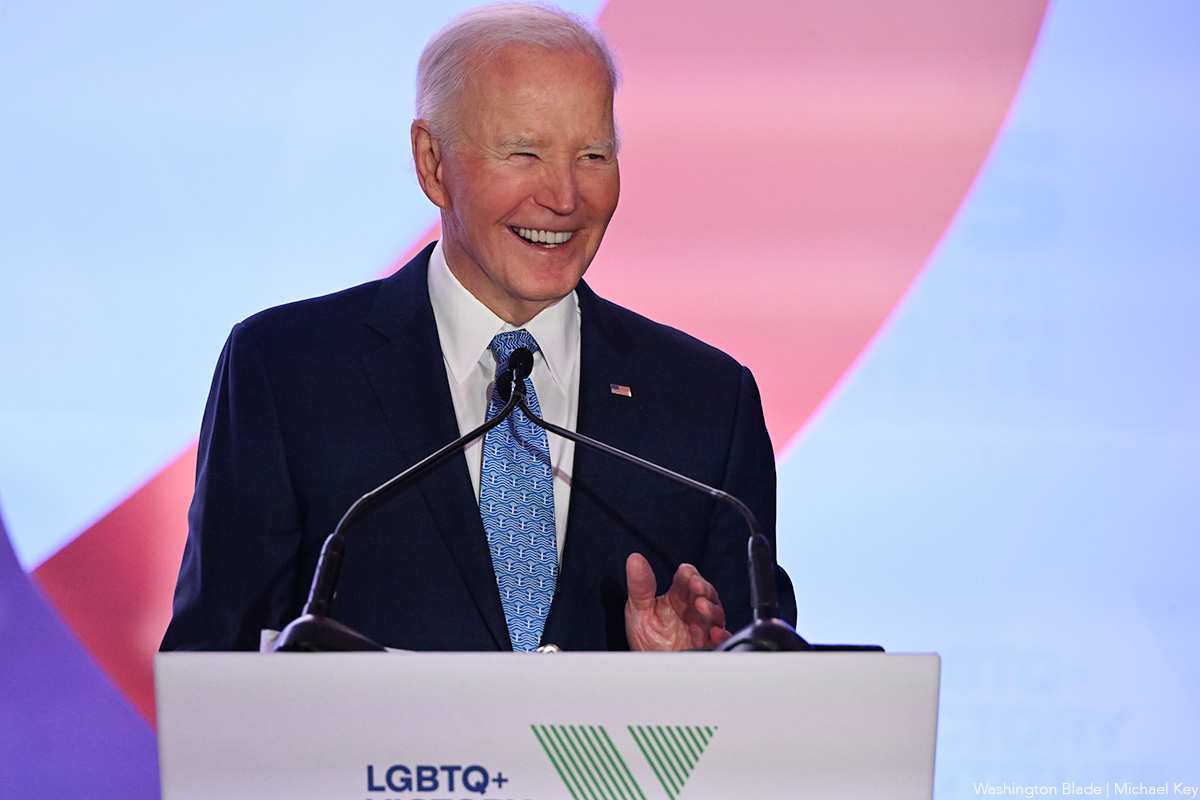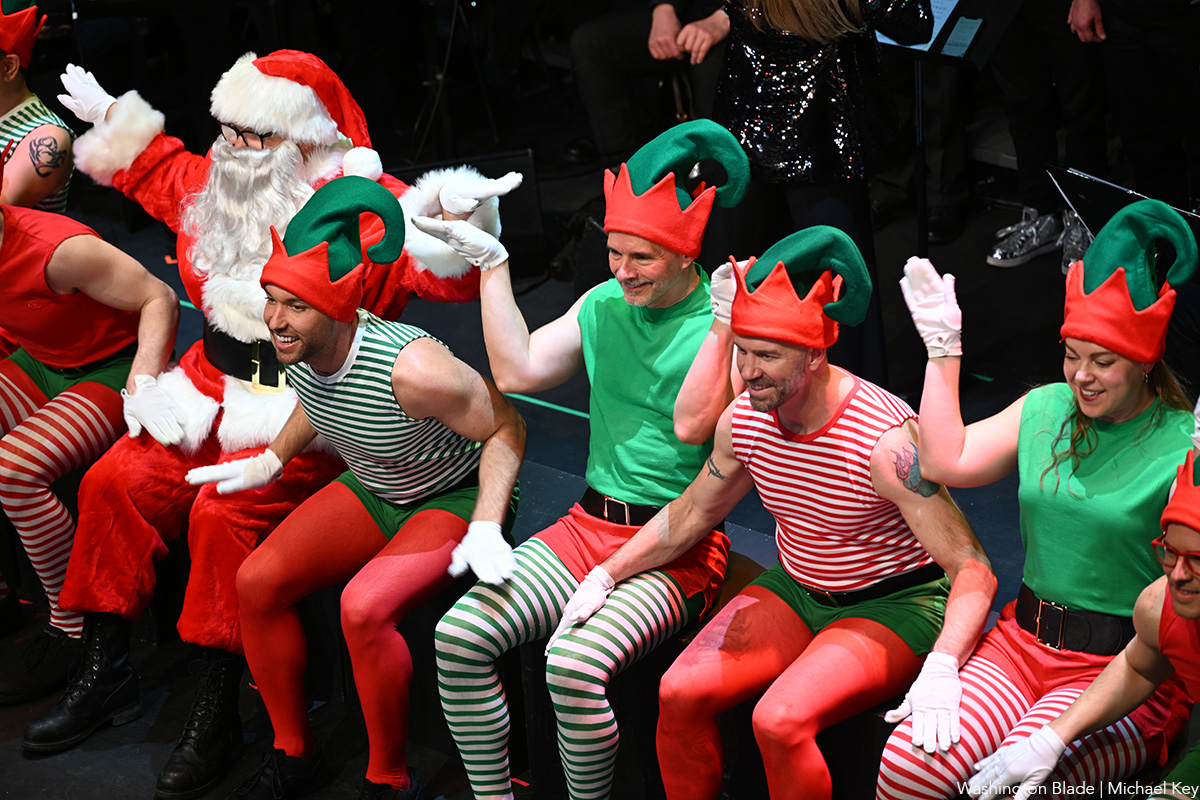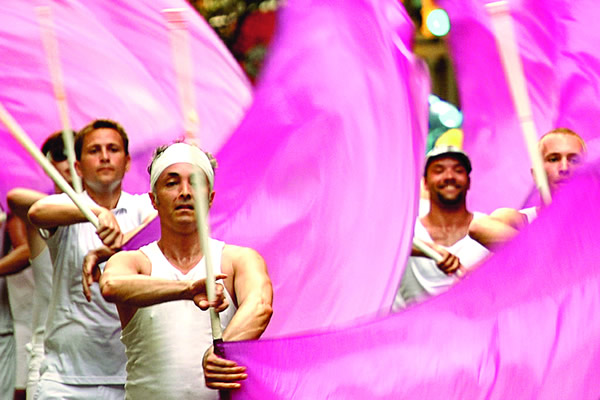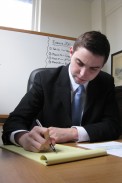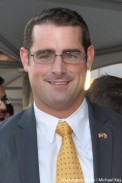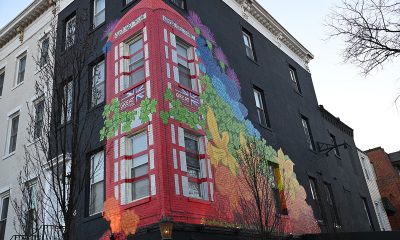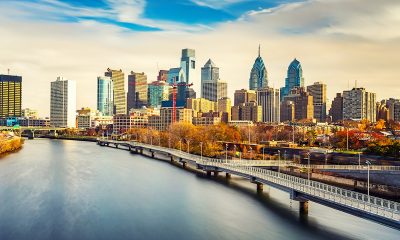Arts & Entertainment
Progress in Pennsylvania
A mini trend of change as openly gay officials emerge
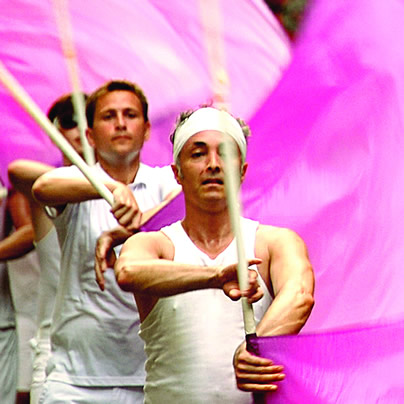
When Philadelphia attorney Brian Sims set his sights on a seat in Pennsylvania’s storied state House last September, the odds were stacked against him: Not only would he be a political newcomer, but he also was running as an openly gay man in the same state that once elected virulently homophobic former U.S. Sen. Rick Santorum.
Seven months later, however, he won his primary race to represent the 182nd District in the state House of Representatives, part of a mini trend of recent gay-supportive political changes that have some wondering if a progressive wave isn’t starting to emerge in the Keystone State.
Supporters of the idea point to Sims, who is running unopposed in the November election, as well as to 24-year-old gay Harrisburg Treasurer John Campbell, who is helping the state’s capital city cope with its much publicized bankruptcy. Meanwhile, a state LGBT Equality Caucus is active, and members of the House State Government Committee recently killed efforts to amend the constitution to ban same-sex marriage.
Campbell, a college student who hopes to use tax reform to free Harrisburg from a $300 million debt pileup, believes Sims’ election could signal more positive change to come.
“All states that have passed a marriage equality bill have previously elected an openly gay legislator,” Campbell said, adding that having an out gay man in the state House would go far to personalize the issue of LGBT rights. “It really helps our argument that we are people too.”
Sims said LGBT supporters are making their presence known in the state. He pointed to widespread support among Pennsylvanians for a measure to add LGBT-friendly language to the state human relations act.
The legislation, House Bill 300, has stalled several times in committee.
“I’ve spent years traveling the state talking about LGBT rights and one of the things I like to tell people is the state is not as conservative as people think it is,” said Sims, adding that the state’s failure to pass LGBT-inclusive hate crimes and anti-bullying measures isn’t necessarily reflective of constituent sentiment.
Sims, former board president of Equality Pennsylvania, is poised to become the state’s first openly gay legislator. He has a background of working with attorneys, legislators and community organizations on issues ranging from gender and pay inequity to environmental regulation. And though he didn’t make LGBT issues a campaign lynchpin, he plans to continue including LGBT matters alongside corporate income tax reform and other key issues as he moves forward, he said.
He said such matters increasingly reflect the interests and spirit of the state.
“The state is progressing — we are growing stronger by the minute,” he said. “I don’t necessarily know that our current laws and political structure really do reflect how forward-thinking the people in the state are.”
Opinions of Pennsylvania’s progress are as diverse as its record supporting gay and lesbian residents. The state has historically been a maverick on some fronts, among them the establishment of a state Council for Sexual Minorities in the mid ’70s, and the recent passage of the state’s 28th local LGBT-inclusive non-discrimination ordinance.
And in Philadelphia, home to what’s considered the nation’s oldest operating gay bookstore in Giovanni’s Room, a vibrant LGBT community thrives, according to Mark Segal, who has spent 37 years chronicling the community’s ups and downs as founder of Philadelphia Gay News.
“Society is moving at a brisk pace toward equality and I think this is happening everywhere. But you also have to look at history. Philadelphia is, in many ways, the birthplace of the LGBT movement,” he said, citing the city’s 47-year history of gay Fourth of July marches as an example.
But weak spots remain. For one, those local LGBT-inclusive non-discrimination ordinances are the result of lawmakers’ failure to pass state-level legislation, and are essentially, local attempts to patch up gaps in state law.
And even as President Obama announced his support for same-sex marriage, Pennsylvania Sen. Bob Casey (D) has remained conspicuously quiet on the issue.
“[Pennsylvanians’] reputation in general is one of being pretty safely in the middle, and what that means is sometimes they’re progressive, and sometimes they’re not,” said Ted Martin, executive director of Equality Pennsylvania. “It’s a place that doesn’t want to rush out too far nor does it like to be in the end.”
The head of the state’s main LGBT advocacy group said he believes Pennsylvania is growing more progressive, just very slowly.
He pointed to recent polls showing up to 51 percent of state residents support same-sex marriage and said lawmakers he encounters no longer insist they don’t have any gays in their district.
“Are we turning a corner, are we taking some steps forward? I like to think so,” he said. “We’re certainly starting to have a conversation we never had and that’s a good thing.”
That conversation comes at a sensitive moment in regional LGBT politics. Surrounded by states passing LGBT-friendly measures, Pennsylvania has increasingly become an ideological island, a fact that could have a damaging economic impact, some say.
“Many places that already permit same-sex marriage — New York, Maryland, D.C. and others — are geographically close to Pennsylvania,” Rep. Babette Josephs told Philadelphia magazine last week. “We will be losing valuable citizens to these other states because of our backward ways; the image of Pennsylvania will continue to be tarnished.”
But turning Pennsylvania into a more progressive state presents a significant challenge. For one, the state’s political landscape remains blue at the edges, anchored by liberal Philadelphia and Pittsburgh, with a rural, conservative center.
Moreover, that center enables a powerful Republican Party that keeps the General Assembly “in a 1950s bubble,” Segal said.
But Campbell believes that makes the state better poised than most to be a national example of change.
“If a battleground state is trending toward being more open and accepting, that should lead the way for other states to do the same,” Campbell said. “It’s important to show that even Pennsylvania can do it.”
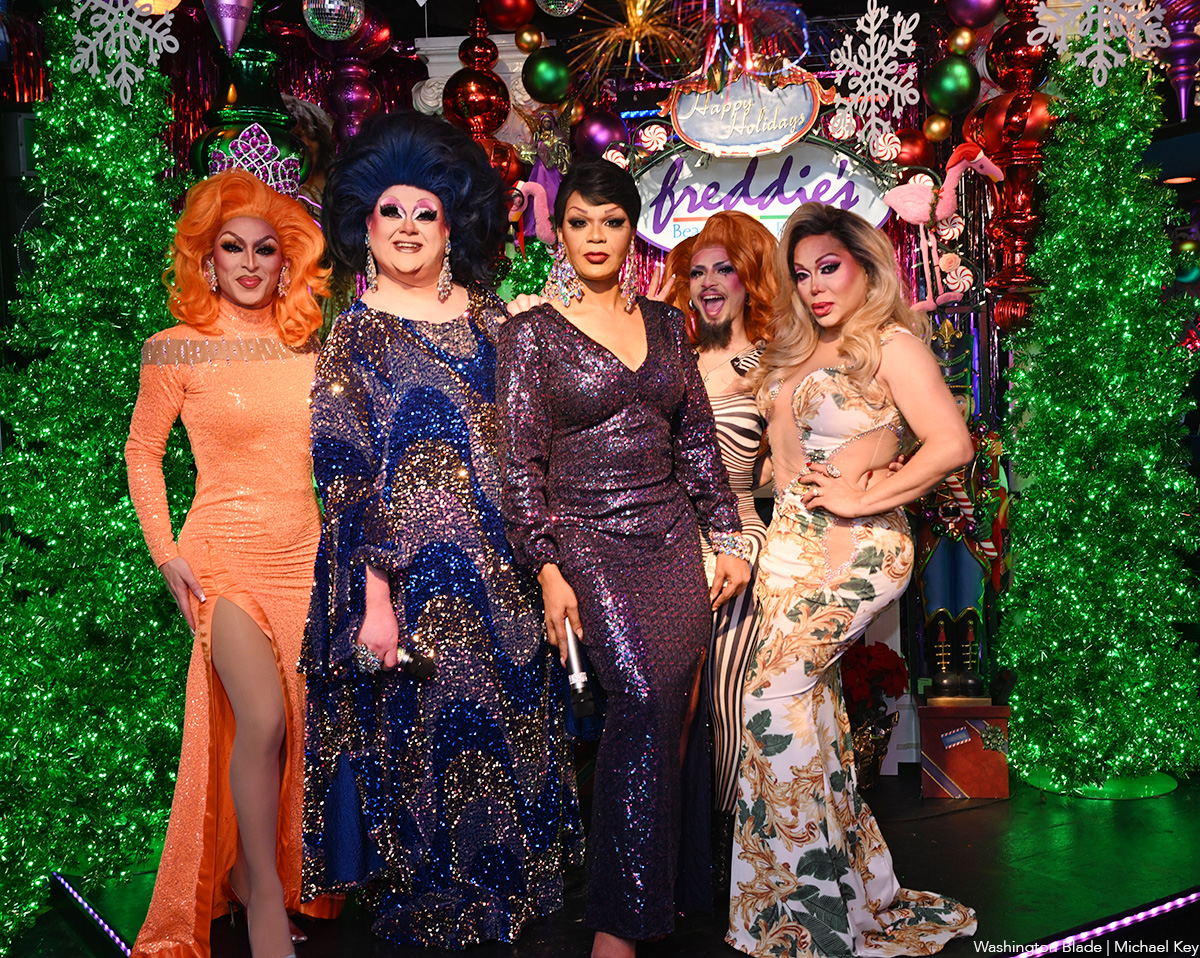
The Freddie’s Follies drag show was held at Freddie’s Beach Bar in Arlington, Va. on Saturday, Jan. 3. Performers included Monet Dupree, Michelle Livigne, Shirley Naytch, Gigi Paris Couture and Shenandoah.
(Washington Blade photos by Michael Key)

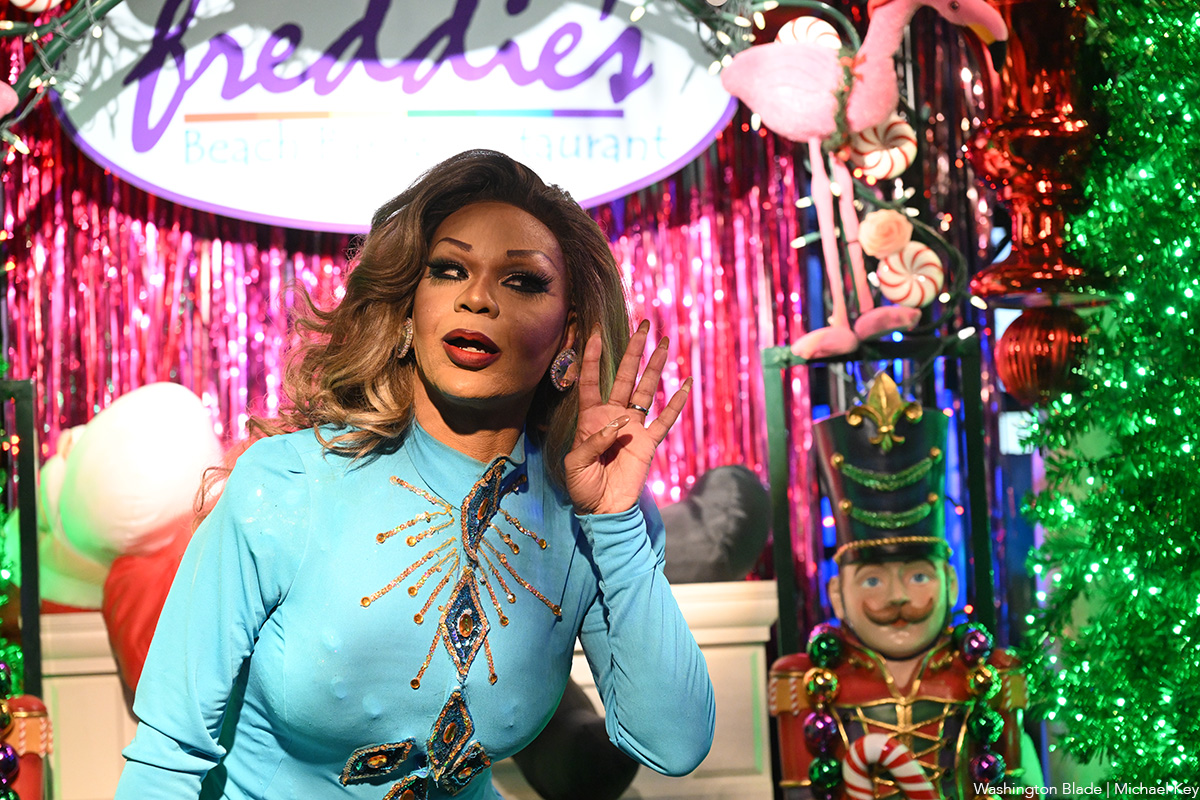





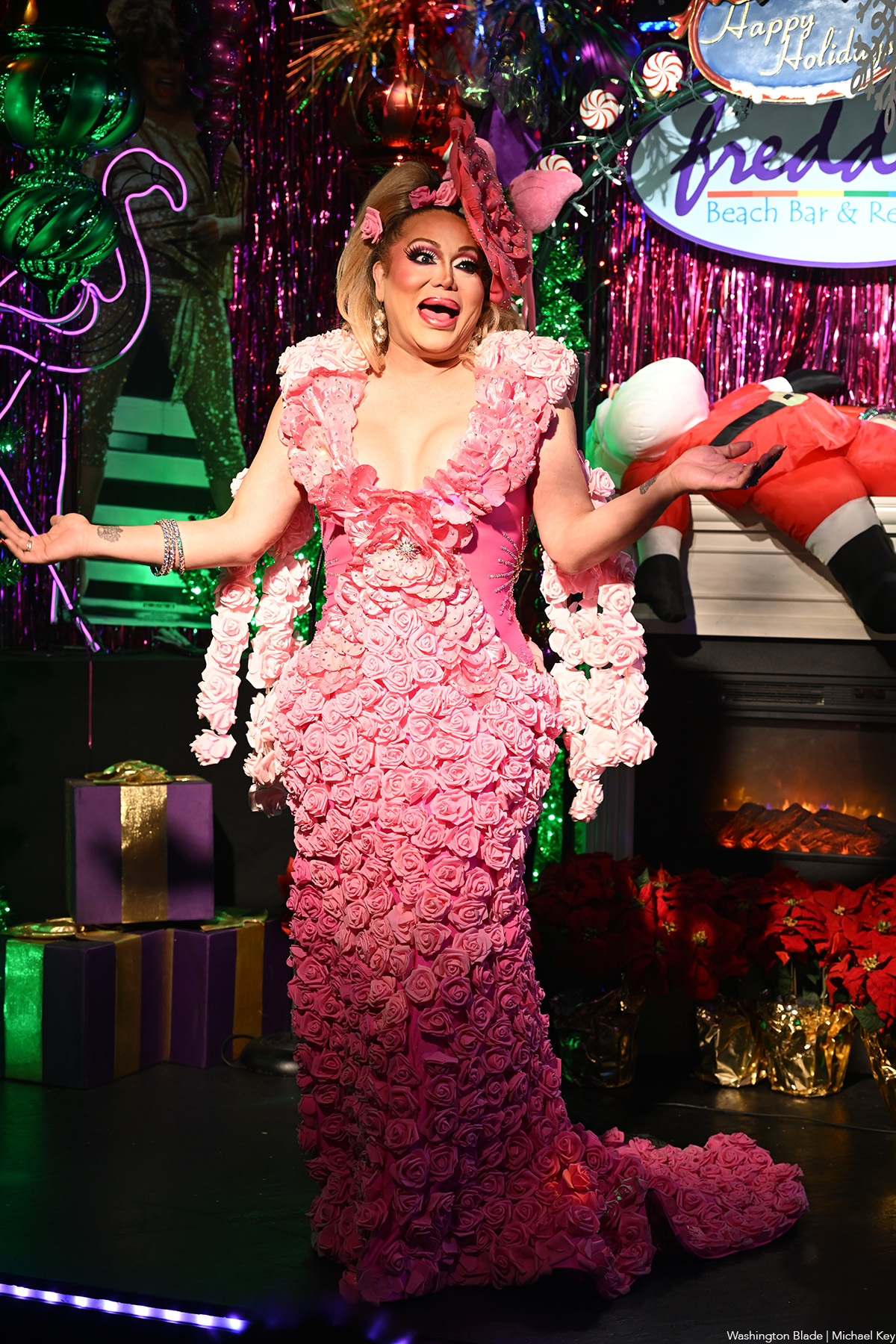
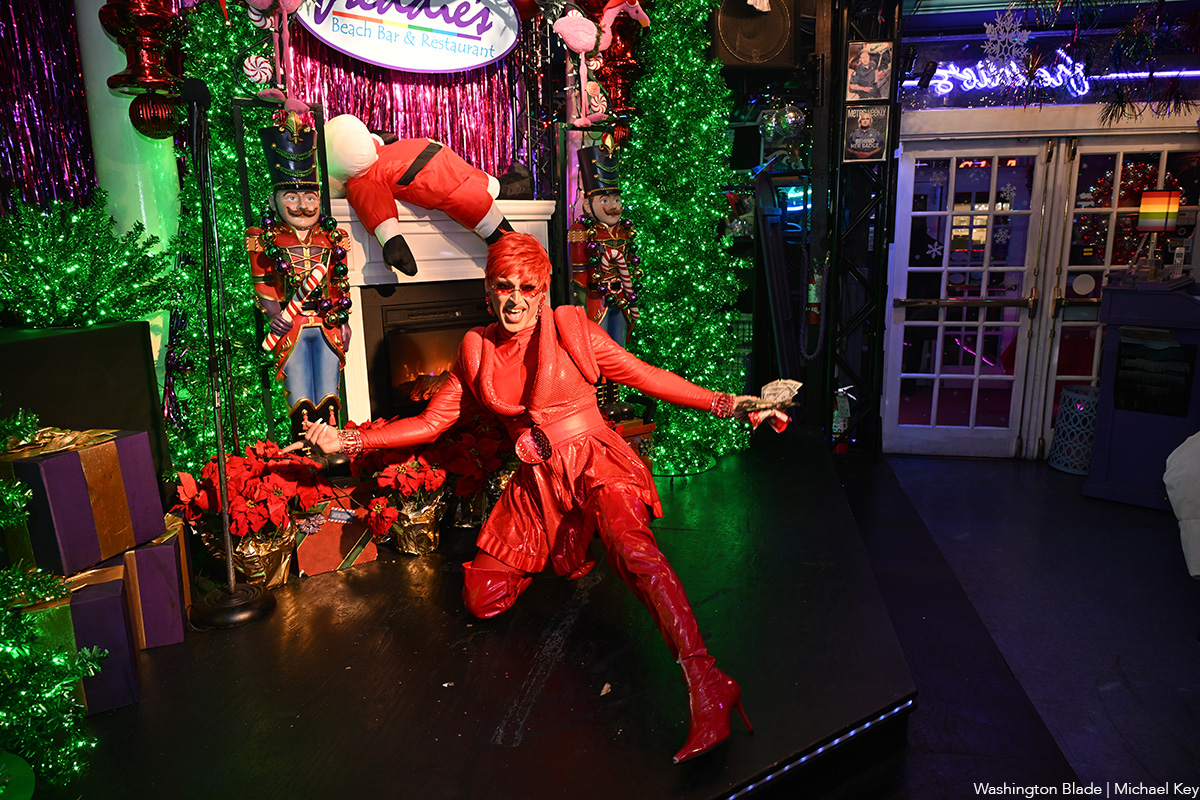
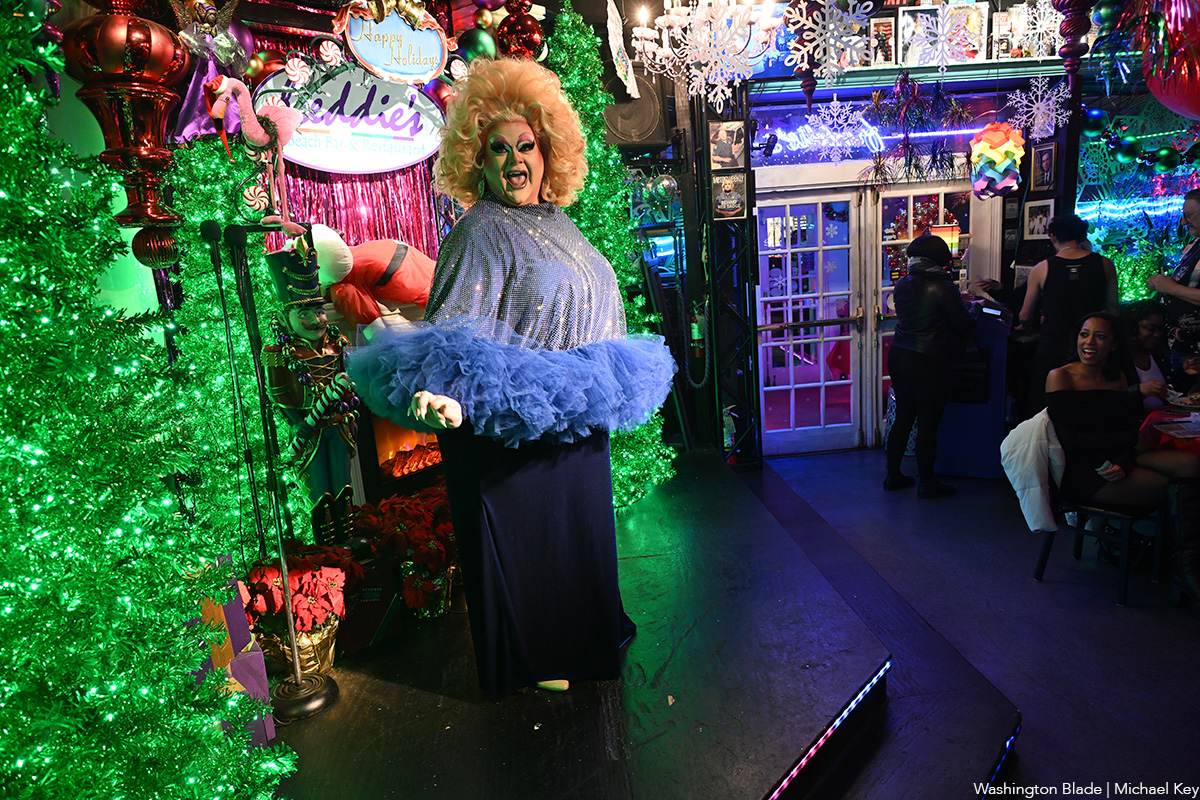
a&e features
Queer highlights of the 2026 Critics Choice Awards: Aunt Gladys, that ‘Heated Rivalry’ shoutout and more
Amy Madigan’s win in the supporting actress category puts her in serious contention to win the Oscar for ‘Weapons’
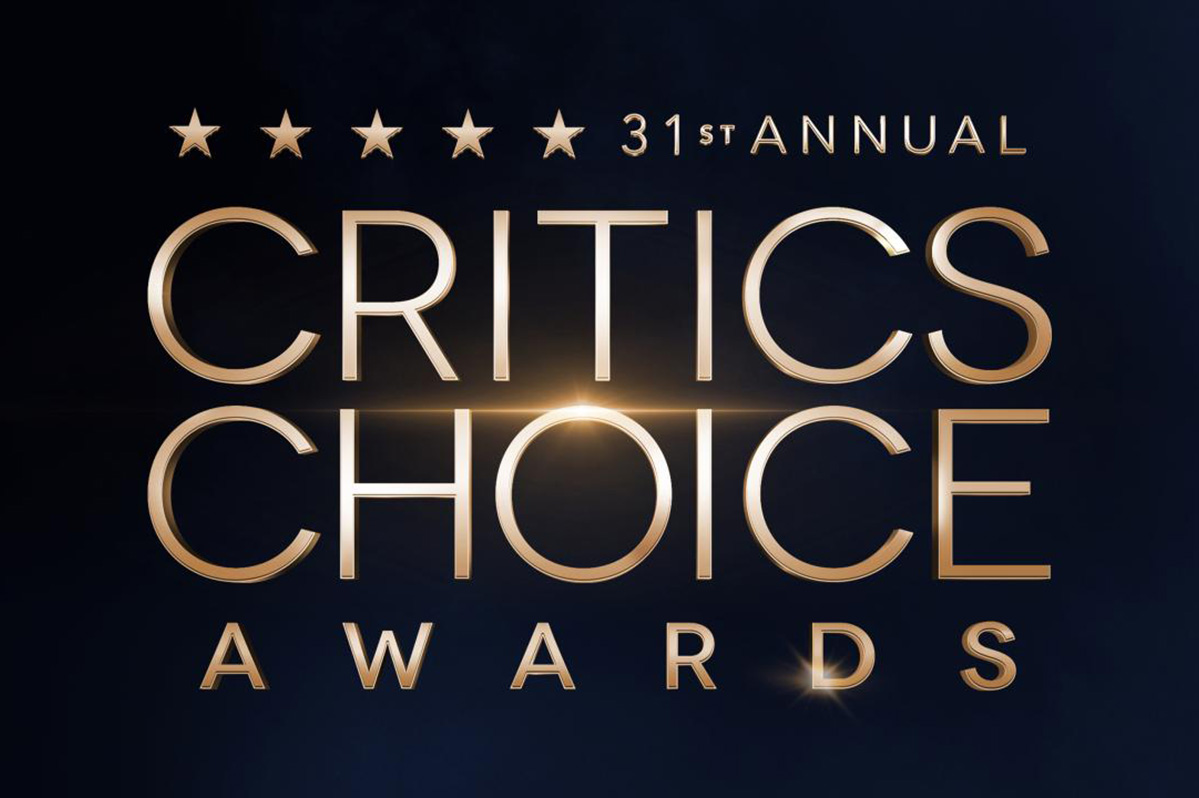
From Chelsea Handler shouting out Heated Rivalry in her opening monologue to Amy Madigan proving that horror performances can (and should) be taken seriously, the Critics Choice Awards provided plenty of iconic moments for queer movie fans to celebrate on the long road to Oscar night.
Handler kicked off the ceremony by recapping the biggest moments in pop culture last year, from Wicked: For Good to Sinners. She also made room to joke about the surprise hit TV sensation on everyone’s minds: “Shoutout to Heated Rivalry. Everyone loves it! Gay men love it, women love it, straight men who say they aren’t gay but work out at Equinox love it!”
The back-to-back wins for Jacob Elordi in Frankenstein and Amy Madigan in Weapons are notable, given the horror bias that awards voters typically have. Aunt Gladys instantly became a pop culture phenomenon within the LGBTQ+ community when Zach Cregger’s hit horror comedy released in August, but the thought that Madigan could be a serious awards contender for such a fun, out-there performance seemed improbable to most months ago. Now, considering the sheer amount of critics’ attention she’s received over the past month, there’s no denying she’s in the running for the Oscar.
“I really wasn’t expecting all of this because I thought people would like the movie, and I thought people would dig Gladys, but you love Gladys! I mean, it’s crazy,” Madigan said during her acceptance speech. “I get [sent] makeup tutorials and paintings. I even got one weird thing about how she’s a sex icon also, which I didn’t go too deep into that one.”
Over on the TV side, Rhea Seehorn won in the incredibly competitive best actress in a drama series category for her acclaimed performance as Carol in Pluribus, beating out the likes of Emmy winner Britt Lower for Severance, Carrie Coon for The White Lotus, and Bella Ramsey for The Last of Us. Pluribus, which was created by Breaking Bad’s showrunner Vince Gilligan, has been celebrated by audiences for its rich exploration of queer trauma and conversion therapy.
Jean Smart was Hack’s only win of the night, as Hannah Einbinder couldn’t repeat her Emmy victory in the supporting actress in a comedy series category against Janelle James, who nabbed a trophy for Abbott Elementary. Hacks lost the best comedy series award to The Studio, as it did at the Emmys in September. And in the limited series category, Erin Doherty repeated her Emmy success in supporting actress, joining in yet another Adolescence awards sweep.
As Oscar fans speculate on what these Critics Choice wins mean for future ceremonies, we have next week’s Golden Globes ceremony to look forward to on Jan. 11.
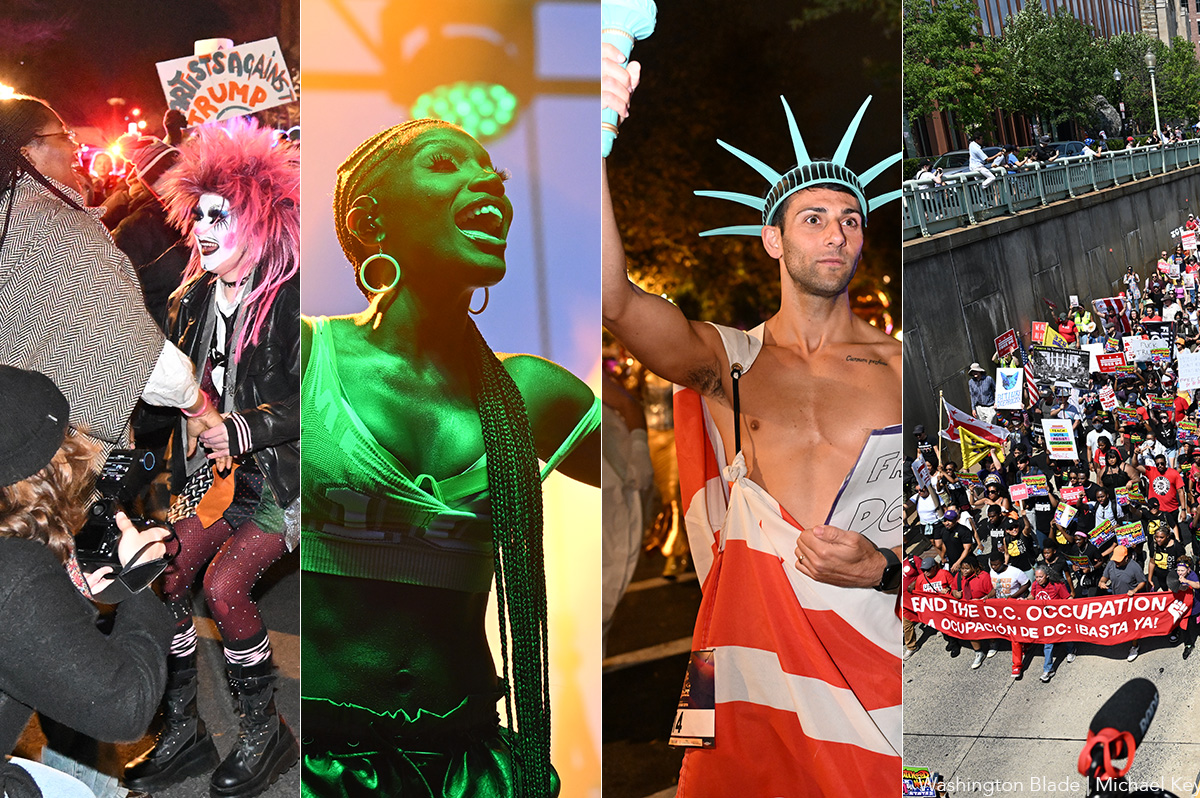
(Washington Blade photos by Michael Key)
